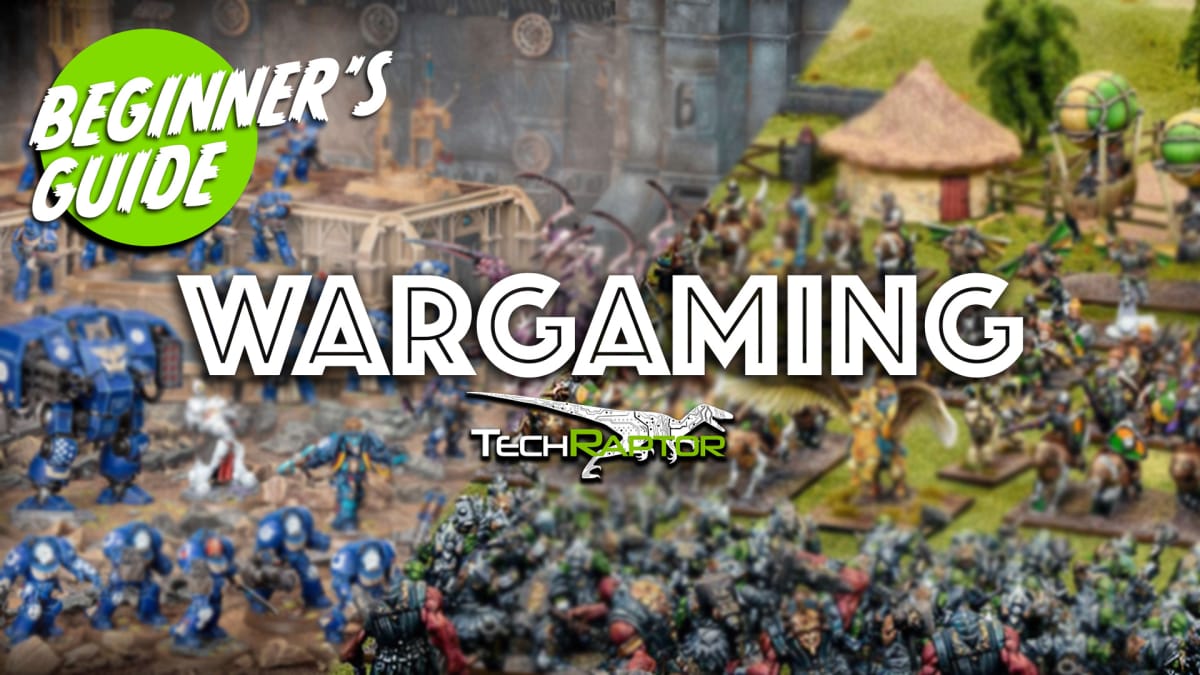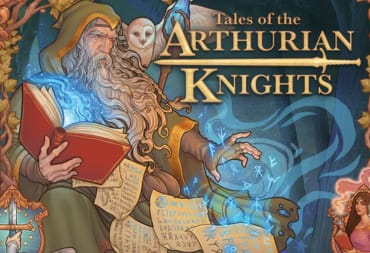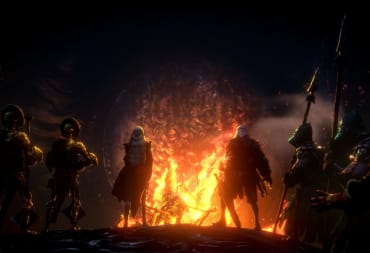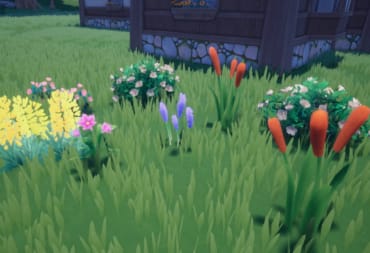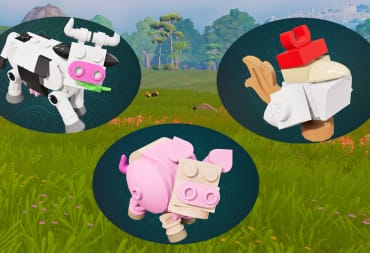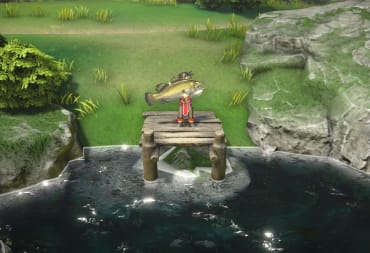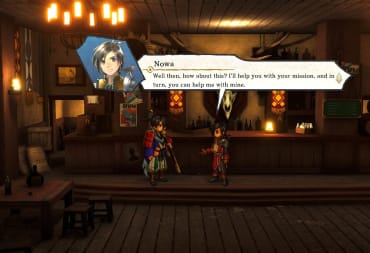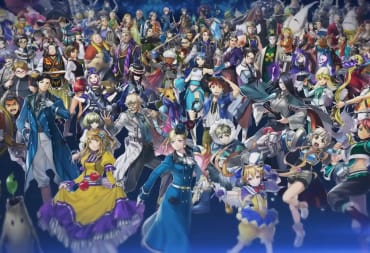Always wanted to get into wargaming but don't know how? Want to know the best wargame for beginners to pick up? What do all these different wargaming terms means? In this article, we have all those answers. We'll look at what wargames are, the common phrases and terms that refer to wargames, what beginner players should look for in a wargame, and then 5 of the best wargames for beginner to start off with.
What Is A Wargame?
The definition of a wargame is a pretend battle for the purpose of training, usually simulating conflict with players controlling opposing sides. The tabletop definition is slightly different. Technically chess is a wargame, but it's also a board game.
I consider anything with pre-measured shapes of measurement, played on a board or map to be a board game, and any battle game using measurement tools (tape measure or pre-measured implements) to be a wargame. This is the definition we'll use in this guide and all the games we'll look at will follow that definition.
When looking at wargames, there are several different types and lots of phrases you'll hear. So in the following section, we'll break down some of the phrases.
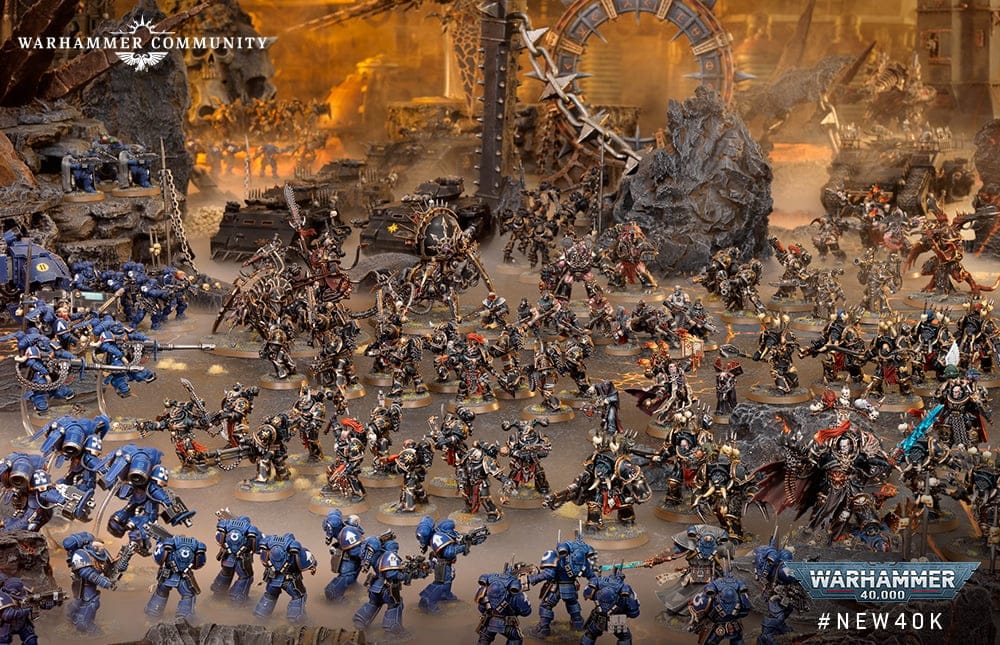
What Different Types Of Wargame Settings Are There?
There are 4 high-level settings for wargames, and these settings also have sub-settings and some of the settings are a lot more popular than others:
- Sci-Fi
- Fantasy
- Modern
- Historical.
Some games also cross settings, Bushido by GCT Studios, for example, could be considered Historical, because of its obvious links to feudal East Asia, but the inclusion of Oni (demons), kami (spirits), and yokai (ghosts) puts it more in the Fantasy setting.
Zombie apocalypse games like Project Z by Warlord Games could be considered Sci-Fi because of their futuristic fantastical nature. Still, their use of modern weapons and culture put it more in the Modern setting.
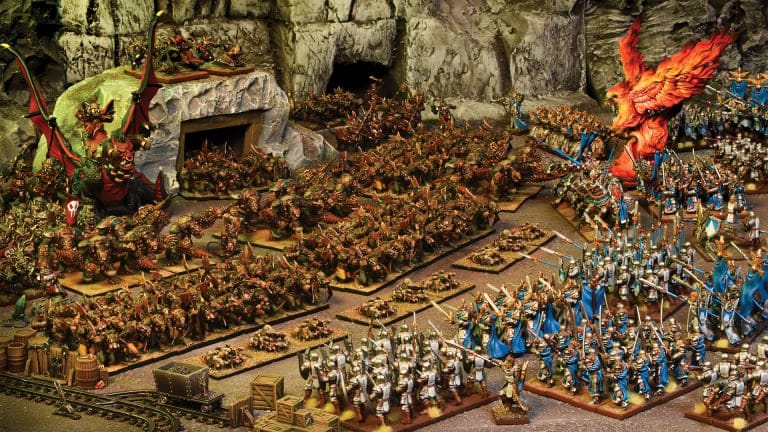
What's The Difference Between A Skirmish And Mass Battle Wargame?
The difference between a skirmish wargame and any other is generally the number of troops you control. In mass battle wargames, which are considered the standard wargames, like Warhammer 40K, players control large groups of troops, characters, or hero units, and even vehicles.
Rank and Flank games, like A Song of Ice and Fire or Kings of War, are a specific type of mass battle game, where units move as blocks, usually on large movement trays for ease, and rather than moving individual units, entire formations are moved around and into each other for combat.
Skirmish wargames come from the skirmishers, who usually weren't part of large formations of troops, and instead spread themselves out to limit the effectiveness of incoming enemy fire. Skirmish wargames generally involve a lower model count than other wargames, where players control individuals, rather than whole units at a time, games like Kill Team or Bushido.
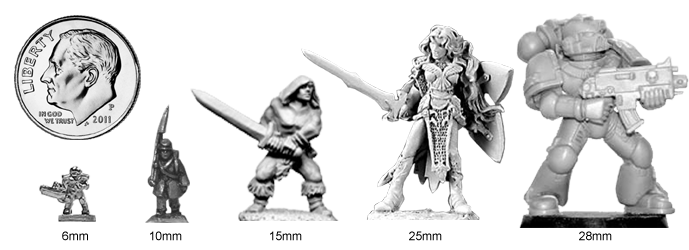
What Does Miniature Scale Mean In Wargames?
Miniature scale is used to identify what other miniatures will work with the system. Most wargames are 28mm scale, and Games Workshop's systems started as 28mm but have grown in their current systems to 32mm heroic scale.
Heroic scale means that certain parts of the miniature will be larger to make it easier to see and paint details. Some games can go down to a tiny scale, and many historical wargames are like this, to represent entire armies on the tabletop.
What Is A Miniatures Agnostic Wargame?
Miniatures agnostic simply means that any miniatures can be used in the system. The system might come with its own range of miniatures, but they're not compulsory and any can be used to play it. Frostgrave and One Page Rules systems (which usually come printed on a single page) are examples of this and are great for exploring new rules systems.

What Should You Look For In A Wargame?
There are several things to consider when looking at getting into wargaming for the first time, and they will all be dependent on you and your circumstances.
The things you should consider when picking up your first wargame are (the following list isn't in order, just considerations):
- How complex are the rules?
- Are you looking for in-depth rules to sink your teeth into and strategize, or are you more interested in fast-paced action?
- Are the rules available for free online?
- Most systems offer at least the core rules online, this will give you a chance to test them out using tokens or proxy miniatures.
- Is the system easy to get into? Does it have a solid onboarding process?
- Most starter sets include some build-up games.
- How difficult are the miniatures to construct?
- Most board games come with single-piece plastic miniatures, but wargame miniatures can be from different materials (metal, plastic, or resin), which all require different methods, tools, and glues to construct. Some companies' miniatures are also widely known as difficult to put together, and others, usually the larger scale, are much easier.
- How much scenery is needed to play?
- Some games, like Mordheim, Infinity, Frostgrave, or Neromunda require a lot of scenery, which can be difficult when first starting out. Anything can be used in your early games, books for hills, boxes for buildings, etc.
- Does the game have a 2-player starter set?
- Having one is usually a good indication of a well-thought-out introduction to the system.
- Is the game widely played in your area?
- When thinking about your first wargame, you would do well to pick one that's popular in your area, just for the availability of games. The more games you play the more you learn. Joining a community will also allow you to pitch a different game you might be interested in playing in the future.
- The most important factor when picking your first wargame choose one that appeals to you.
- All of the above is irrelevant if you don't think the game and faction you chose look awesome. When you understand the mechanics of wargames a little more, then other systems that might not appeal to you aesthetically might be more interesting for how they play.
Which Wargames Are Best For Beginners?

Warhammer 40,000
Games Workshop's Warhammer 40,000 (or 40K for short) is the best-known and most-played tabletop wargame on the market. The sci-fi setting includes several factions with unique playstyles and aesthetics. The current edition of the rules, 10th Edition, has been made incredibly easy to pick up and start playing, and with its popularity, this is probably the easier game to get into with Warhammer stores around the world, and the huge player base for the game.
The rules for this edition have been designed to help get new players in and playing as quickly as possible and they're also available for free online here.
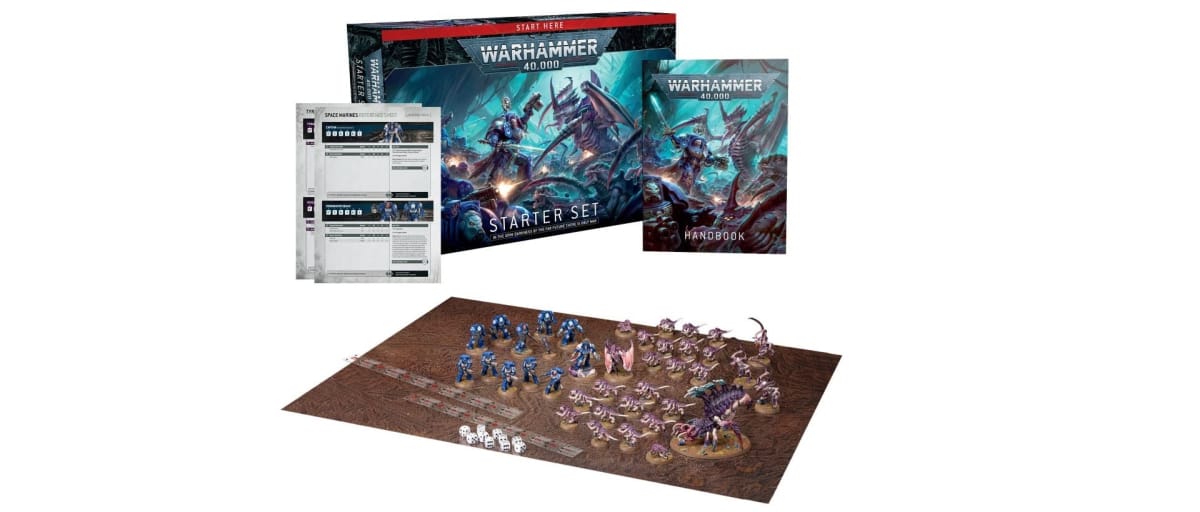
To start playing Warhammer 40K, you can pick up 1 of the 3 starter sets, which build up from the Introductory Set to the Starter Set and Ultimate Starter Set. But you can also start playing in a fully valid game type Combat Patrol, by simply picking up one of the many available Combat patrols, and then downloading the free 40K rules and the rules for your Combat Patrol (you will also need to add some dice and a tape measure in too).
All Warhammer 40K miniatures need to be assembled and ideally painted. To make the hobby experience easier for those new to it, the Starter Set miniatures are all push-fit, which means that once they've been cut from the sprue and cleaned up, they push together without glue.
Pros of Warhammer 40,000:
- Huge player base
- Great starter set
- Push-fit miniatures
- Combat Patrol is a fantastic beginner system
Cons of Warhammer 40,000:
- Can be expensive moving on from a starter set to a full army.
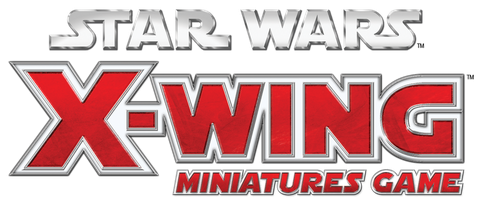
Star Wars X-Wing
Star Wars X-Wing, originally by Fantasy Flight Games, now under the reins of Atomic Mass Games, sees players control ships from the Star Wars universe. The scale sees the players control individual ships and a smaller scale game is available, Star Wars Armarda, that sees players control entire squadrons.
X-Wing is extremely beginner friendly, the miniatures come pre-painted, so you can start playing straight out of the box. All of the stats and rules for the ships come on ships' cards and card inserts that go into the bases.
Each ship also comes with a movement dial that details all of the custom movement tools that the ship can use, and there are also custom range tools for working out weapon range, so there's no need for tape measures and the system uses custom dice, making it quick to work out attacks and defense.

The 2-Player Starter Set is the perfect way to get into Star Wars X-Wing, it contains 3 ships (2 Tie Fighters and an X-Wing) and all the accessories you need to play. There are also lots of extra equipment and pilot cards so that there's lots of replayability out of the box before you even need to start adding new ships.
Pros:
- Pre-painted miniatures
- Very beginner-friendly with custom dice and movement dials
- All unit stats on cards and bases
Cons:
- Can get complex beyond the starter set with the huge amount of ship and pilot options
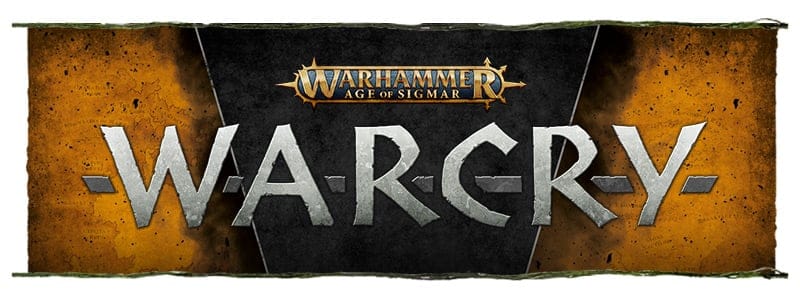
Age of Sigmar Warcry
Warcry by Games Workshop is a skirmish wargame set in their fantasy Age of Sigmar setting. The game features a small number of fighters in each player's warband and a tight rules package with limited stats for each fighter. Games are also played using custom dice which keeps games fast.
The miniatures can be a little more complex than the push-fit miniatures from Warhammer Underworlds, or those that come in the Warhammer 40K starter sets, and there is some variation in the way some miniatures go together with armaments, but it is the perfect entry-game into the world of Age of Sigmar.

The current 2-player starter set Crypt of Blood, includes 2 push-fit warbands and is a very beginner-friendly way to get into an already beginner-friendly system. For a step-up in hobby challenge, Nightmare Quest includes 2 full warbands (not push-fit) and lots of terrain. Warcry is best played with lots of terrain with multiple levels, so getting a solid amount from the starter set is ideal.
Pros:
- Extremely fast to pick up
- Custom dice and all unit stats on cards are very entry-level friendly
- Very enjoyable gameplay
Cons:
- Not all warbands are balanced and this can lead to some new players struggling with their choice of warband

Kings of War
Kings of War by Mantic Games is a fantasy mass battle wargame. Players pick their armies from one of the 26 available including fantasy favorites like Elves, Dwarves, Ratkin, and Undead, along with races like the Nightstalkers, horrors from nightmares, and the Northern Alliance, a mix of men and ice monsters like trolls and wolves.
Unlike the other wargames detailed so far, units in Kings of War are arranged in ranks, with their bases together to form a single block of troops. You will commonly hear these types of games known as rank and flank, for the way units are ranked together, which gives a maneuverability challenge that can be rewarded with a flank or rear charge of an opposing unit.
Kings of War is a miniatures agnostic system, and while Mantic Games makes a fantastic range of miniatures for the system, any miniatures can be used to create your chosen army.
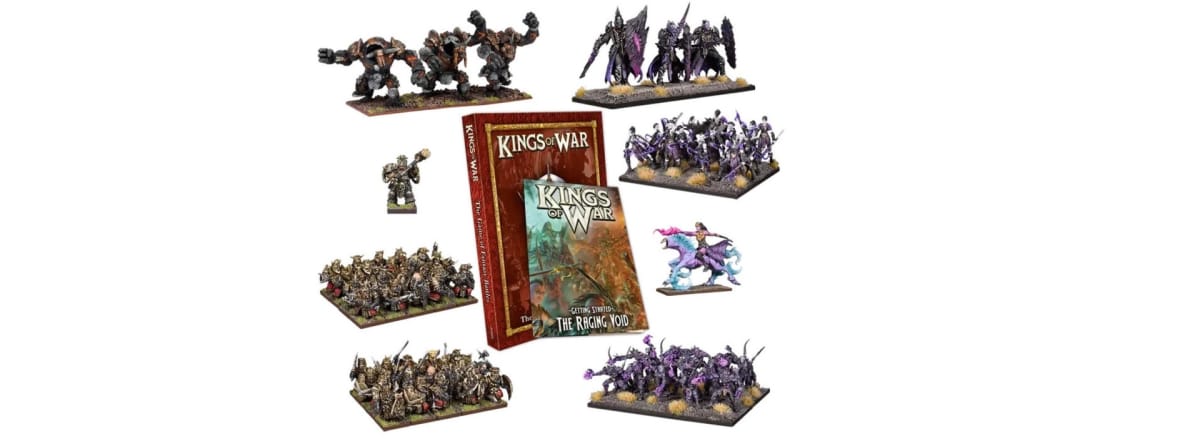
A brand new starter set has just been released, Kings of War The Raging Void 2 Player Set which features an army of the Twilight Kin, and another of Abyssal Dwarves, along with the Rulebook which contains the latest rules, errata, FAQs, and army lists, along with a starter guide for the 2 armies it contains.
Pros:
- Very beginner-friendly rules
- Great starter sets (would benefit from adding dice/measuring tools for beginners)
- Full range of fantasy army choices
Cons:
- Lots of miniatures to assemble and paint, but the rulebook does have options for smaller-scale games
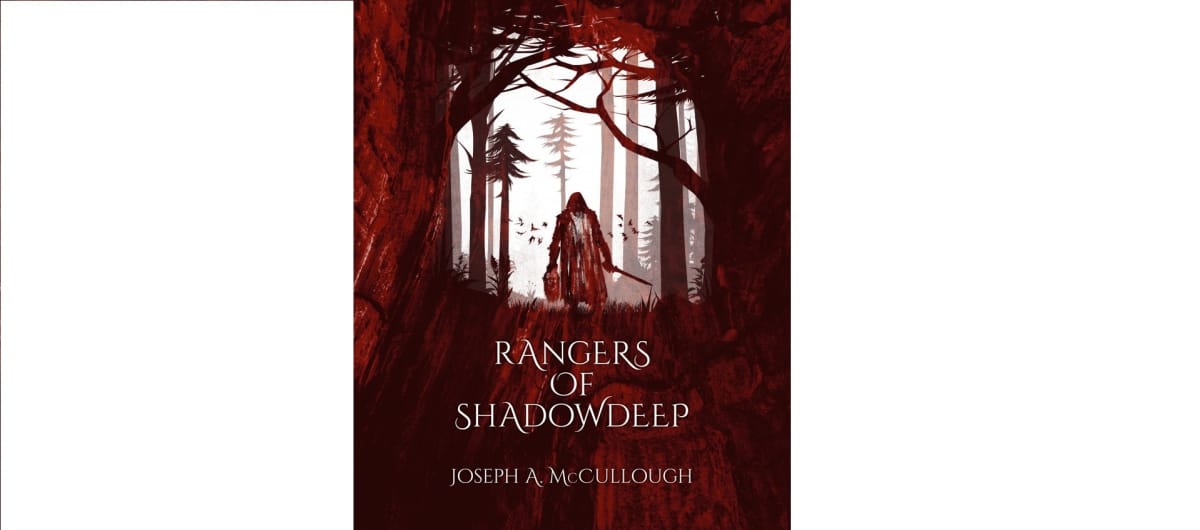
Rangers of Shadowdeep
Rangers of Shadowdeep is a miniatures agnostic system that blends wargaming with roleplaying game elements. It can be played solo, or cooperatively with a group. Players create their characters, using an RPG-like system for stats and abilities, then head off on missions with AI-controlled enemies. The missions in the rulebooks list the enemies you will meet, so you can either pick up the miniatures for them as you go, print off paper standees, or simply use bits of paper to represent the enemies. You can also use any miniatures to represent your Ranger and their crew.
As you play through games, your ranger will gain experience and items, growing and developing as you play, and as it can be played solo or cooperatively, you'll never be without a game, and you can play almost anywhere with the rules and hand-drawn maps for the scenery at a minimum, but having miniatures and model scenery will help with the immersion.

There isn't a starter set for Rangers of Shadowdeep, players should start with the rulebook and then look to find miniatures that represent their ranger and their crew before setting off on adventures.
Pros:
- Solo play is great for beginners trying it out at home
- Fantastic blend of RPG and wargaming elements
- Miniatures agnostic gives a lot of choice
Cons:
- No starter set
--
That's it for our Beginner's Guide to Wargaming - after reading this, you should have a solid grasp of the different kinds of Wargames out there, and which one may be right for you!
Have a tip, or want to point out something we missed? Leave a Comment or e-mail us at tips@techraptor.net
